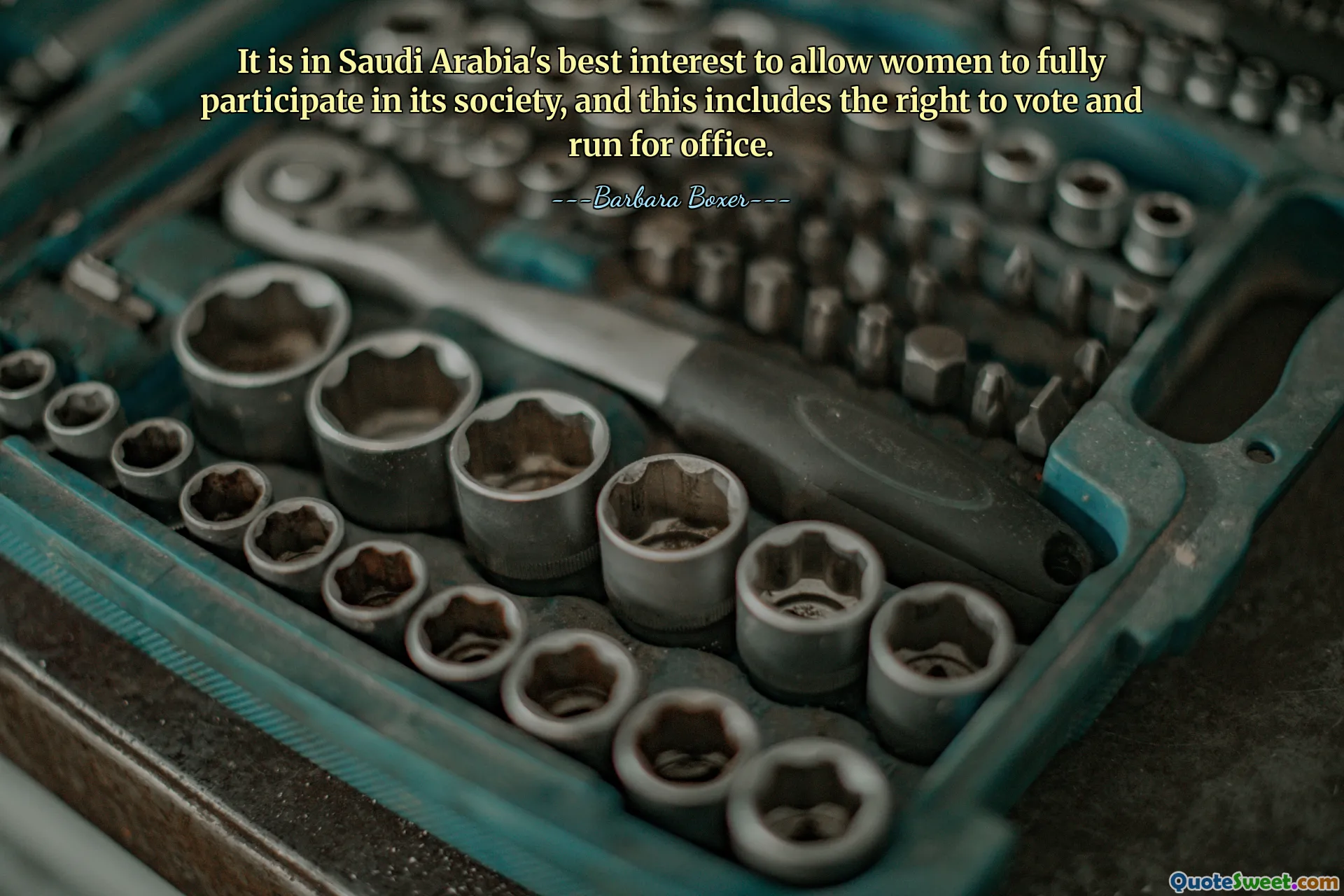
It is in Saudi Arabia's best interest to allow women to fully participate in its society, and this includes the right to vote and run for office.
The quote emphasizes the importance of gender equality and the active participation of women in societal decision-making processes. Allowing women to vote and run for office is not merely a matter of individual rights; it is also a strategic move that can significantly benefit a nation's development. When women are empowered and given equal opportunities, societies tend to experience improved social, economic, and political outcomes. Diverse perspectives in governance make for more comprehensive policies that consider the needs of the entire population. In the context of Saudi Arabia, a country traditionally characterized by conservative social norms, advocating for women's political participation signals a progressive shift towards inclusivity and modernization. This progression can foster better gender relations, enhance economic productivity by tapping into the full potential of the workforce, and promote a more balanced and representative governance structure. Such reforms can also improve international relations and credibility, as global stakeholders increasingly value fairness and human rights. Moreover, enabling women to take on leadership roles challenges long-standing stereotypes and paves the way for future generations of girls and women to aspire towards higher achievements. Although cultural and religious considerations are often cited as barriers, the changing global landscape shows that adaptation and reform are signs of strength and foresight, not weakness. Ultimately, allowing women to participate fully in Saudi Arabian society aligns societal interests with universal principles of equality, fairness, and progress, ensuring a more just and prosperous future for the nation.











